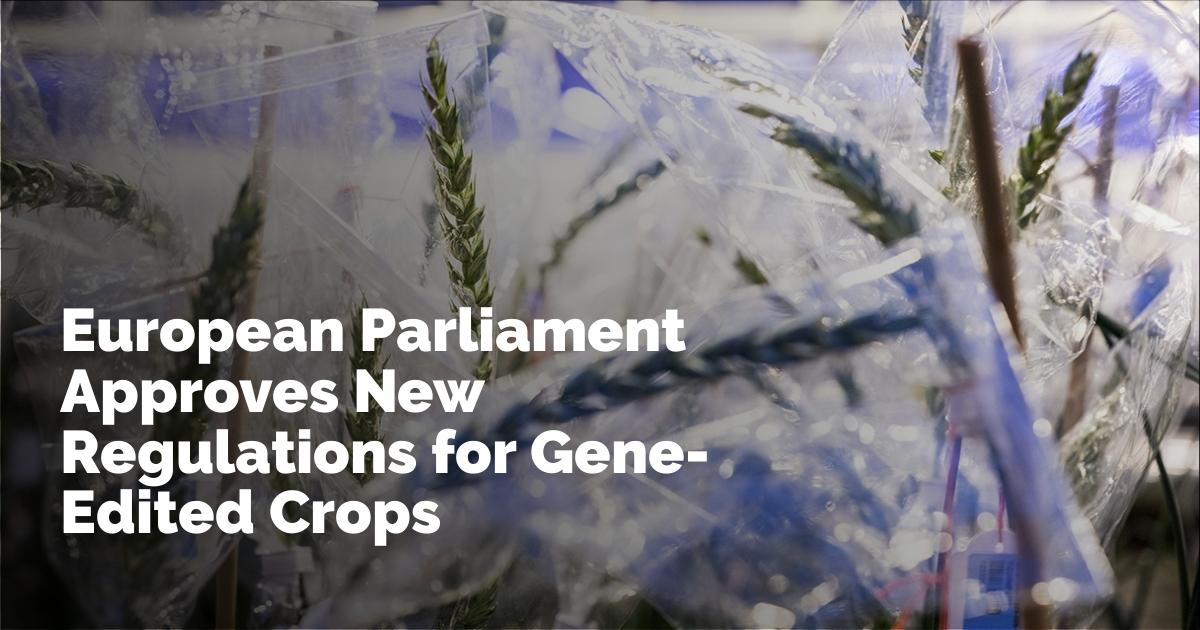European Parliament's Pivotal Decision on Gene-Edited Crops
The European Parliament recently took a significant step towards easing regulations concerning gene-edited crops, a decision hailed by proponents as a major win for innovation and advances in agricultural sustainability. The measure promises to enhance crop yields and bolster resistance to pests and pathogens, potentially reducing the reliance on pesticides. However, the decision remains contentious, with critics warning about potential monopolistic practices in agriculture.
The Vote and Its Controversies
The legislation passed by a fairly narrow margin of 307 to 263, with 41 members choosing to abstain. Interestingly, the support for this bill crossed typical party lines, demonstrating a multifaceted stance on the issue across the political spectrum. However, major European factions such as the Greens remained firmly opposed to the measure, reflecting ongoing tensions around genetically modified organisms (GMOs) in European agriculture.
Before this legislation can take effect, it must proceed through negotiations with the European Union's member states. Critical discussions remain regarding whether gene-edited plants should be patented and whether foods derived from these crops necessitate labeling standards.
Perspectives from the Scientific Community
Plant research advocates, including Oana Dima, the managing director of European Sustainable Agriculture through Genome Editing (EU-SAGE), celebrated the outcome as a significant boost for scientific advancement in Europe. EU-SAGE, encompassing over 150 research institutions and associations, has been a staunch advocate for regulatory reform since 2018. This effort followed a ruling by the European Court of Justice categorizing crops modified through genome editing technologies like CRISPR as GMOs. This classification imposed stringent regulations, leading to minimal approval for planting gene-edited crops in Europe.
A Shift in Perspective
In 2019, responding to a request from the European Council, the European Commission conducted a study on new genomic techniques (NGTs). The study concluded that existing GMO regulations were hindering scientific progress. In July 2023, the Commission proposed a new regulatory framework allowing certain gene editing methods to bypass traditional GMO legislation, provided the modifications could have been achieved through conventional breeding methods, albeit at a slower pace. Complex genetic alterations, especially those incorporating foreign DNA, would still be subject to existing regulations.
Despite historical opposition to NGTs within the European Parliament, recent developments have softened resistance. The success of COVID-19 mRNA vaccines has boosted biotechnology's image, and the urgent need to adapt agricultural practices to climate change and global supply chain disruptions has increased interest in innovative plant breeding techniques.
Diverging Views on Patents and Labeling
While the Parliament shows readiness to approve gene-edited crops, debates continue over patenting these technologies. Some members argue against patents, suggesting this could help keep costs manageable for farmers—a reflection of established practices where conventionally bred plants cannot be patented in Europe. Dima suggests that discussions on patent protection should be distinct from NGT legislation and fall under the broader EU patent regulatory context.
Another contentious issue is the labeling of NGT-derived plants. While Parliament insists on labeling all such plants for consumers, the European Commission advocates labeling only the seeds sold to farmers, ensuring transparency at the producer level.
Next Steps and Industry Reaction
The Council has yet to establish its position on the patenting and labeling aspects. Once consensus is achieved, negotiations with the Commission and Parliament will ensue. Dima hopes for a resolution before the upcoming parliamentary elections in June, but the timeframe remains tight.
The agricultural lobby group Copa Cogeca has taken to social media, urging prompt action from the Council. The group champions NGTs as key to modernizing agriculture in alignment with climate change challenges while sustaining research excellence within the EU.
In conclusion, the European Parliament's decision marks a pivotal moment in the regulation of gene-edited crops. While progress is commendable, the journey towards implementing these changes remains fraught with debate and division, underscoring the complexity of modern agricultural policy in an era of rapid scientific advancement.
출처 : 원문 보러가기

